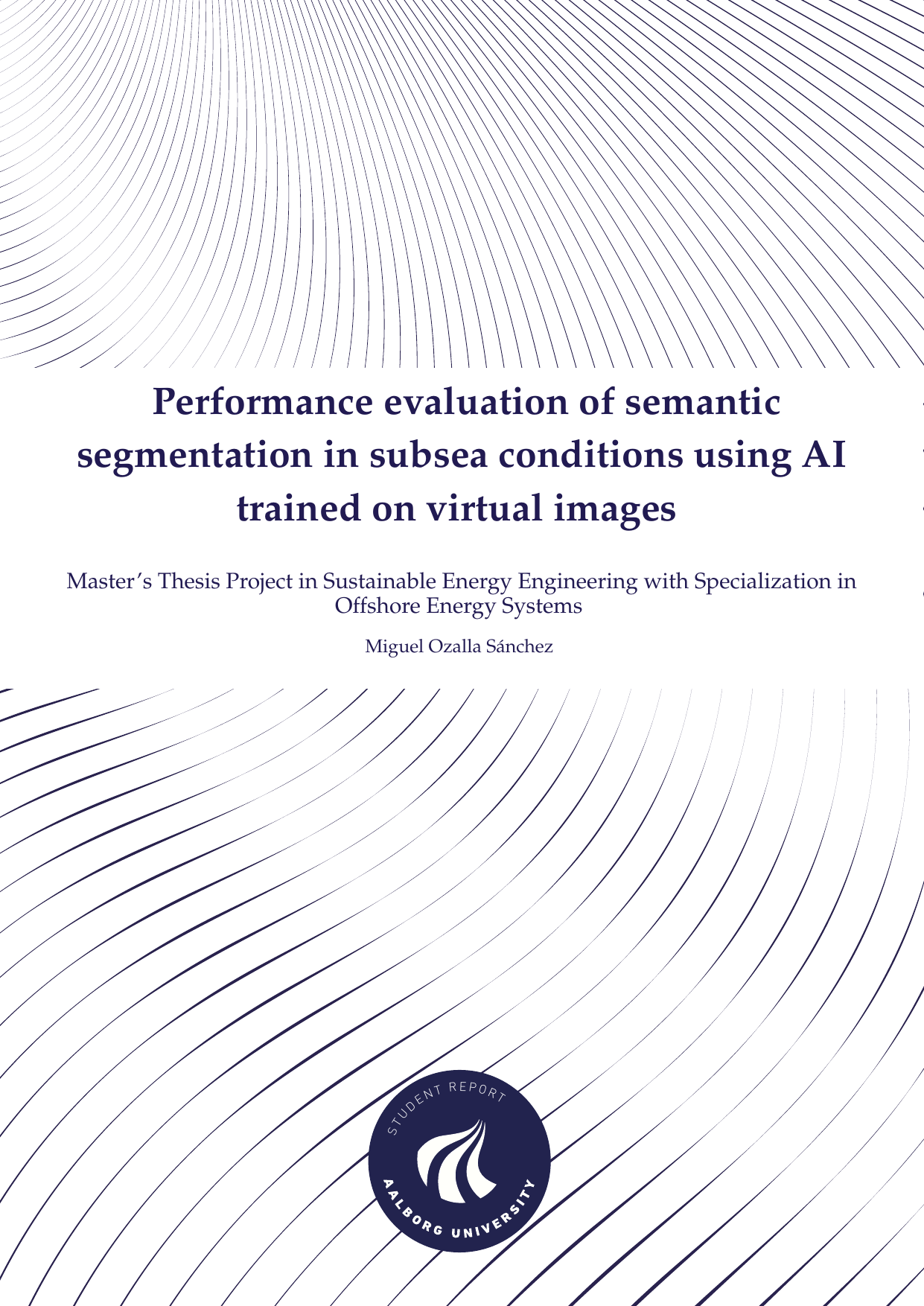
Performance evaluation of semantic segmentation in subsea conditions using AI trained on virtual images: Master’s Thesis Project in Sustainable Energy Engineering with Specialization in Offshore Energy Systems
Translated title
Performance evaluation of semantic segmentation in subsea conditions using AI trained on virtual images
Author
Term
4. semester
Education
Publication year
2025
Submitted on
2025-06-02
Pages
120
Abstract
Inspection and monitoring are critical activities in the maintenance and protection of underwater infrastructure. The opacity and turbidity of water can difficult the visibility of essential elements in such structures. This project explores the use of synthetic data generation to train a DeepLab v3+ semantic segmentation network with a ResNet-18 backbone. The objective of this thesis is to evaluate the neural network’s ability to correctly identify objects in submerged environments with different turbidity levels. 1,800 image pairs comprising raw images and their corresponding segmentation masks were rendered by parameterizing water scattering and absorption in Blender. They were analyzed for five different situations, covering three discrete turbidity levels, an environment with no turbidity or diffraction elements, similar to the absence of water, and the case where all the aforementioned turbidity conditions and different water colorations are taken into account. The network was trained separately on each dataset and then evaluated on a turbidity test set to determine how sensitivity to training conditions affects real-world performance. Comparative analysis with models trained with low, medium, and high turbidity studies the impact of data diversity on prediction accuracy. These results offer valuable insights for developing robust vision systems for industrial applications such as pipeline inspection or structural health studies of infrastructure, where reliable object detection under turbid waters is essential for safety and operational efficiency.
Documents
